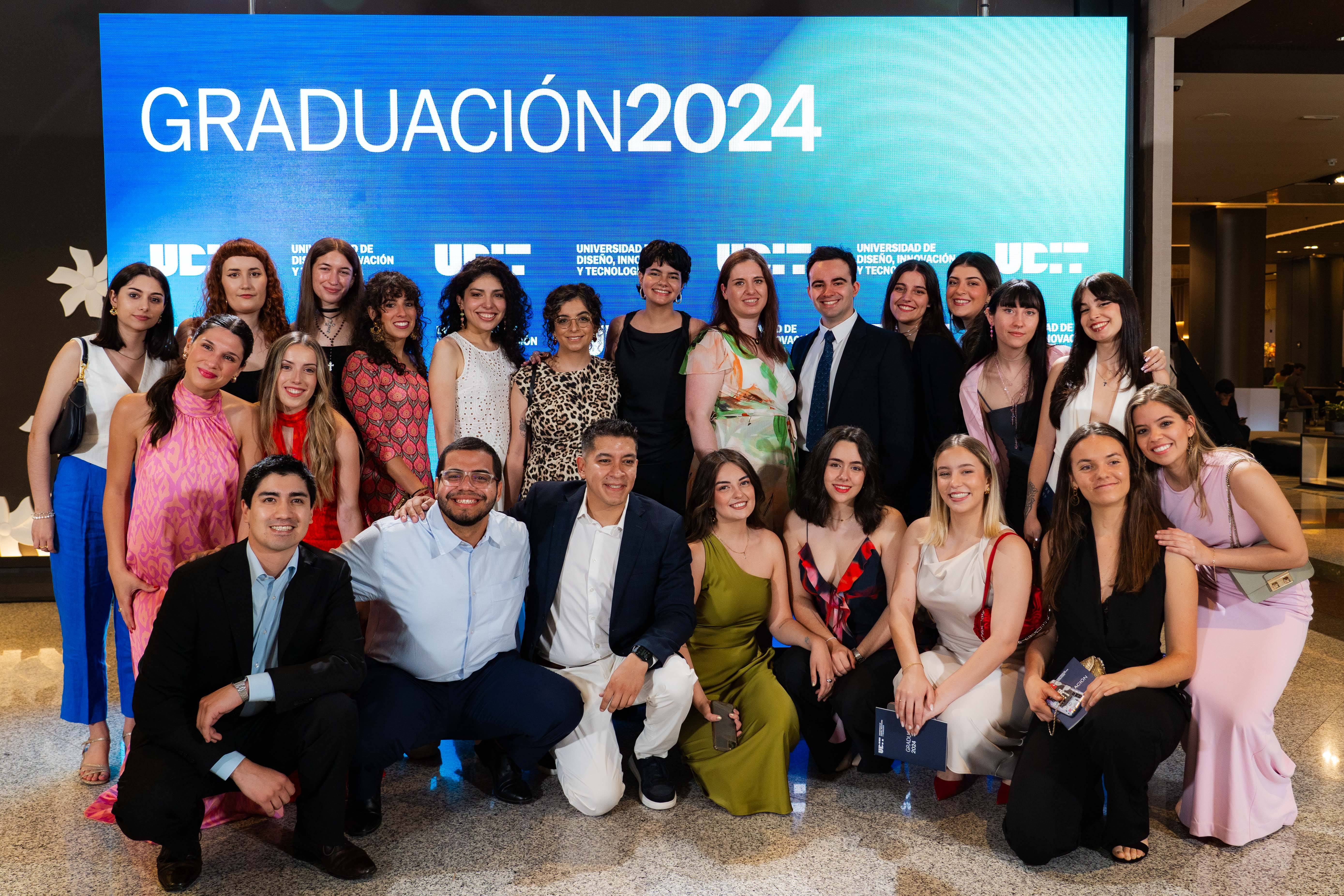
Admission of international students
Our international vocation is a reality that is growing day by day.
a university near you
OPEN AND DIRECT
More and more students from all over the world are choosing UDIT's undergraduate and postgraduate courses to study Design and Technology.
If you are a university student and would like to do a temporary stay at UDIT, discover all the options available to you in theinternational section.
Undergraduate Admission
Fill in the following form, call us on +34 91 555 25 28 or write to us at admision.internacional@udit.es. Once you have registered, you will need to pre-register to start the admission process.
You will receive an email with the application form for international students. This application must be accompanied by: a photocopy of your valid passport.
UDIT conducts a 100% online test for prospective students. Your academic skills will be assessed to ensure that you are ready for the challenge, you will take a four-part placement test: artistic skills test (only for Design degrees), specific knowledge test, English test and a personal interview.
Once the results of the tests and the coordinator's assessment are known, the International Admissions Department will inform you in writing of the results of the tests.
If you are admitted, you will have to pay the Reservation of Place fee, this payment guarantees your place to study your chosen degree and to be able to start the procedures for foreigners to be able to study in Spain.
Once you have made the payment, you must send the proof of payment together with your passport to admision.internacional@udit.esorupload the documents through the link that you received in the Test Results email.
Once you have taken the test and have been informed of your admission to UDIT, you must book your enrolment to guarantee your place for the next course. Places are allocated in strict order of booking.
Frequently Asked Questions
Undergraduate admission for international students:
The candidate must present the following documents:
- Transcript of grades of the last two years of high school apostilled/legalised depending on the country of origin.
- Apostilled/legalised high school diploma, depending on the country of origin. This document must be approved by the Spanish Ministry of Education and Vocational Training, regardless of the country of origin .
*Important: if the above documents are not in Spanish, they must be translated by a sworn translator.
If the candidate is studying or has completed an IB (International Baccalaureate) the following documents must be presented:
- Transcriptof records for the last two years of the baccalaureate.
- IB diploma. They must apply for the Credencial de Homologación del título de Bachiller through the UNED.
If you come from a country that is a signatory to the Hague Convention of 5 October 1961, it is not necessary to carry out legalisation, it will be sufficient to apostille the required documentation at the Ministry of Foreign Affairs of your country of origin.
If your country of origin does not belong to the Hague Convention, diplomatic legalisation is required.
Legalisation is the procedure for validating the signatures of the authorities that sign a document, thereby accrediting its authenticity, with a view to its presentation in a third country.
How do I do this ?
They must be submitted to:
- The Ministry of Education of the country of origin for diplomas and certificates of studies and at thecorresponding Ministry for birth and nationality certificates.
- The Ministry of Foreign Affairs of the same country for the legalisation of the previous recognition.
- The Spanish Consulate or diplomatic representation of Spain in that country for the recognition of this legalisation.
- The Legalisation Section of the Spanish Ministry of Foreign Affairs located at C/ Serrano Galvache, 26 - 28033 Madrid - Telephone: (+34) 91 3791606 / 91 3791608 / 91 3791609).
Documents issued by diplomatic or consular authorities of other countries in Spain must, in turn, be legalised at the Spanish Ministry of Foreign Affairs.
Yes, as long as you have not completed your baccalaureate/preparatory studies at an International Baccalaureate (IB).
How do I do this?
The homologation of the Spanish baccalaureate (non-university studies) can be done in person or electronically.
- If you choose to do it in person, you will have to go to the Spanish consulate in your country of origin. If you are in Spain, you can do it directly at the offices of the Spanish Ministry of Education .
- If you choose to do it online, you will have to apply for it through the website of the Spanish Ministry of Education at the following link.
*Important: you must pay the fee model 079 to complete the process regardless of the modality you choose.
If you have any doubts, the Spanish Ministry of Universities has a video explaining the whole process. Check it here
Yes, when you are in Spain you must present the originals (legalised, apostilled or IB documentation) to the Student Services Department to validate the information provided.
Yes, if the documents are not in Spanish, they must be translated by a sworn translator .
IB degrees do not need to be translated.
To make international payments you will have at your disposal Flywire, an international payment platform that allows you to make transfers comfortably from home with a credit card. It is a much faster and more agile payment.
However, payment by international bank transfer through your bank is also available, so please discuss this with your advisor, who will provide you with UDIT's bank details.
Master's Admission
Fill in the following form, call us on +34 91 555 25 28 or write to us at admision.internacional@udit.es. Once you have registered, you will need to pre-register to start the admission process.
You will receive an email with the application form for international students. This application must be accompanied by: a photocopy of your valid passport.
Arrange an online meeting with the Master's management to assess your application. After examining your application, you will be invited to an online interview with the Academic Management in order to assess your admission to the Master's programme.
If you are admitted, you will have to pay the Reservation of Place fee, this payment guarantees your place to study your chosen degree and to be able to start the procedures for foreigners to be able to study in Spain.
Once you have made the payment, you will have to send the proof of payment together with your passport to admision.internacional@udit.esorupload the documents through the link that you received in the Test Results email.
See the question " What payment methods are available to me?
Finally, to formalise your enrolment, you will have to hand in the required original documents in person at the UDIT Student Services Department.
Frequently Asked Questions
Admission to master's degrees for international students:
The candidate must submit the following documents:
- Transcript of records or grades obtained during the degree/career/bachelor's degree, previously apostilled/legalised depending on the country of origin.
- Apostilled/legalised degree diploma, depending on the country of origin.
- Letter of access to postgraduate studies issued by the university of origin, stating that the studies allow the student to continue or access postgraduate studies. Notarised or apostilled authentication is acceptable.
If you come from a country that is a signatory to the Hague Convention of 5 October 1961, it is not necessary to carry out legalisation, it will be sufficient to apostille the required documentation at the Ministry of Foreign Affairs of your country of origin.
If your country of origin does not belong to the Hague Convention, diplomatic legalisation is required.
Legalisation is the procedure for validating the signatures of the authorities that sign a document, thereby accrediting its authenticity, with a view to its presentation in a third country.
How do I do this ?
They must be submitted to:
- The Ministry of Education of the country of origin for diplomas and certificates of studies and at thecorresponding Ministry for birth and nationality certificates.
- The Ministry of Foreign Affairs of the same country for the legalisation of the previous recognition.
- The Spanish Consulate or diplomatic representation of Spain in that country for the recognition of this legalisation.
- The Legalisation Section of the Spanish Ministry of Foreign Affairs located at C/ Serrano Galvache, 26 - 28033 Madrid - Telephone: (+34) 91 3791606 / 91 3791608 / 91 3791609).
Documents issued by diplomatic or consular authorities of other countries in Spain must, in turn, be legalised at the Spanish Ministry of Foreign Affairs.
Yes, as long as you have not completed your baccalaureate/preparatory studies at an International Baccalaureate (IB).
How do I do this?
The homologation of the Spanish baccalaureate (non-university studies) can be done in person or electronically.
- If you choose to do it in person, you will have to go to the Spanish consulate in your country of origin. If you are in Spain, you can do it directly at the offices of the Spanish Ministry of Education .
- If you choose to do it online, you will have to apply for it through the website of the Spanish Ministry of Education at the following link.
*Important: you will have to pay the fee model 079 to complete the process regardless of the modality you choose.
If you have any doubts, the Spanish Ministry of Universities has a video explaining the whole process. Check it here
Yes, when you are in Spain you must present the originals (legalised, apostilled or IB documentation) to the Student Services Department to validate the information provided.
Yes, if the documents are not in Spanish, they must be translated by a sworn translator .
IB degrees do not need to be translated.
To make international payments you will have at your disposal Flywire, an international payment platform that allows you to make transfers comfortably from home with a credit card. It is a much faster and more agile payment.
However, payment by international bank transfer through your bank is also available, so please discuss this with your advisor, who will provide you with UDIT's bank details.

Further information
Once you are in Spain, you will have doubts about transport, registration, documentation ... In this document we resolve some of these doubts.
All UDIT degrees require you to pass an admissions process, in which students are guided in their choice of university studies.
There is no obligation on your partto take part in this process and it is free of charge. The practical guide for international students explains the steps to be followed and the requirements to be fulfilled in order to enrol in any of the undergraduate or postgraduate programmes.
